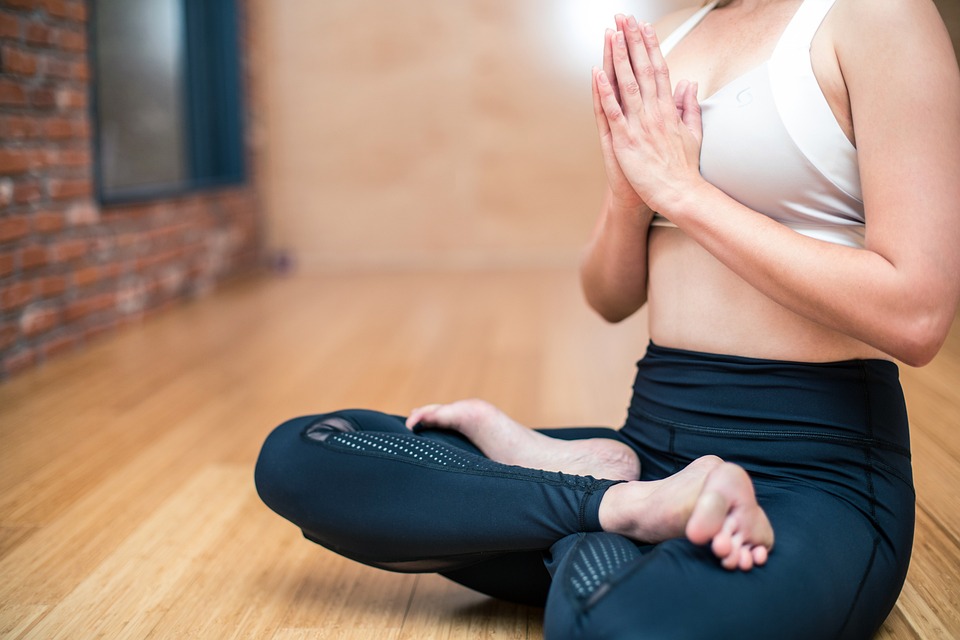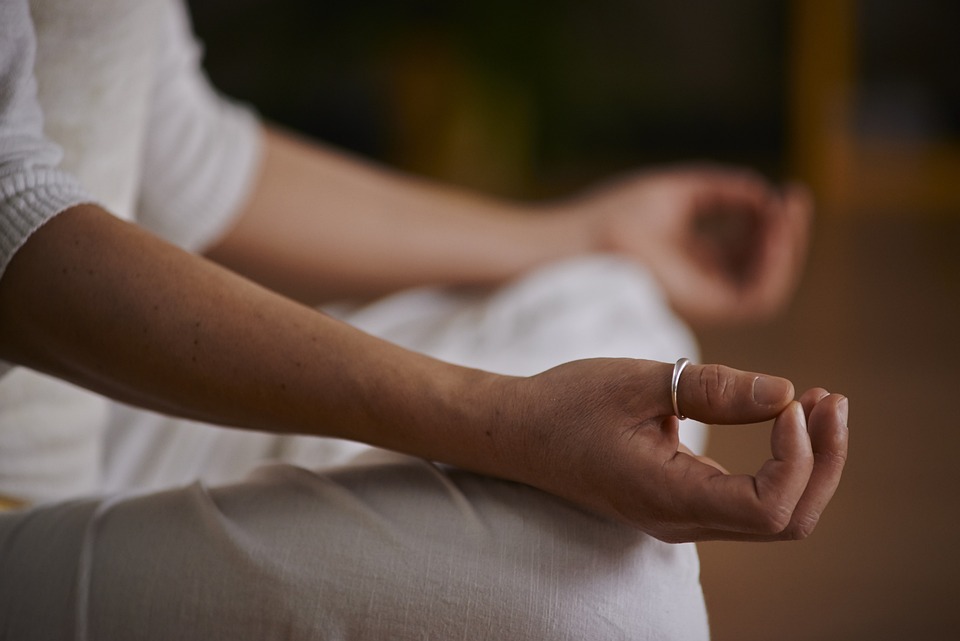Meditation has been practiced for centuries, but in recent years it has gained popularity as a tool for improving mental and physical health. Meditation involves focusing your attention on a specific object, thought, or activity to achieve a sense of calm and relaxation. While the benefits of meditation are well-known, there are some surprising benefits that you may not be aware of.
Surprising benefits of meditation that you need to know
Boosts Immune System
Meditation has been shown to boost the immune system, which can help reduce the risk of illness and disease. A study conducted at the University of Wisconsin-Madison found that individuals who practiced meditation had a stronger immune response to a flu vaccine compared to those who didn’t meditate.
Improves Brain Function
Meditation has been shown to improve brain function in a number of ways. For example, a study published in the journal NeuroImage found that meditation can increase gray matter in the brain, which is responsible for processing information. Meditation has also been shown to improve cognitive function, including memory, attention, and focus.
Reduces Anxiety
Meditation is a powerful tool for reducing anxiety. A study published in the Journal of Psychiatric Research found that individuals who practiced meditation for just 10 minutes a day experienced a significant reduction in anxiety levels.

Increases Emotional Intelligence
Emotional intelligence is the ability to recognize, understand, and manage your own emotions and the emotions of others. Meditation has been shown to increase emotional intelligence, which can help improve relationships, communication, and overall well-being.
Reduces Chronic Pain
Meditation has been shown to be an effective tool for reducing chronic pain. A study conducted at the University of Montreal found that individuals who practiced meditation experienced a significant reduction in pain intensity and unpleasantness.
Improves Sleep Quality
Meditation can help improve sleep quality, which can have a positive impact on overall health and well-being. A study published in JAMA Internal Medicine found that mindfulness meditation can improve sleep quality in older adults with insomnia.
Increases Creativity
Meditation has been shown to increase creativity by improving divergent thinking, which is the ability to generate a variety of ideas. A study published in the journal Frontiers in Psychology found that individuals who practiced meditation had significantly better divergent thinking compared to those who didn’t meditate.
Reduces Symptoms of Depression
Meditation can help reduce symptoms of depression by improving mood and reducing stress. A study published in the Journal of Alternative and Complementary Medicine found that mindfulness-based stress reduction (MBSR), a type of meditation, can significantly reduce symptoms of depression.

Improves Digestion
Meditation can improve digestion by reducing stress and promoting relaxation. A study published in the Journal of Alternative and Complementary Medicine found that individuals who practiced meditation had a significant reduction in symptoms of irritable bowel syndrome (IBS), a common digestive disorder.
Enhances Self-Awareness
Meditation can help enhance self-awareness, which is the ability to recognize and understand your own thoughts, feelings, and behaviors. This can help you make more informed decisions and improve overall well-being. A study published in the journal Consciousness and Cognition found that individuals who practiced meditation had significantly higher levels of self-awareness compared to those who didn’t meditate.
Other Health Benefits
In addition, meditation also impacts positively on many other aspects of health and well-being, such as reducing blood pressure, improving cardiovascular health, and reducing symptoms of anxiety disorders.
There is no second opinion that incorporating meditation into your daily routine can help you experience these benefits and improve your quality of life.
If you’re interested in incorporating meditation into your daily routine, there are many different types of meditation to choose from.
Common Types of Meditation
Mindfulness Meditation
Mindfulness meditation involves focusing your attention on the present moment, without judgment or distraction. This can be done by paying attention to your breath, body sensations, or thoughts and emotions.
Loving-kindness Meditation
Loving-kindness meditation involves cultivating feelings of love, compassion, and kindness towards yourself and others. This is done by repeating phrases or visualizing images of people or situations that bring up positive feelings.

Transcendental Meditation
Transcendental meditation involves using a mantra or sound to quiet the mind and achieve a deep state of relaxation. This type of meditation is often practiced for 20 minutes twice a day.
Body Scan Meditation
Body scan meditation involves systematically scanning your body from head to toe, focusing your attention on each part and noticing any sensations or tension. This can help promote relaxation and reduce stress.
Walking Meditation
Walking meditation involves walking slowly and mindfully, paying attention to the sensations in your body and the environment around you. This can be done indoors or outdoors, and is often used as a way to combine physical activity with meditation.
Visualization Meditation
Visualization meditation involves creating a mental image or scenario that is relaxing or inspiring, such as a peaceful beach or a successful outcome to a difficult situation. This can help reduce stress and improve motivation.
Chakra Meditation
Chakra meditation involves focusing on the energy centers or “chakras” in the body, which are believed to correspond to different emotions and physical sensations. This type of meditation is often used in yoga and other spiritual practices.
Vipassana Meditation
Vipassana meditation involves observing your thoughts and emotions without judgment, with the goal of gaining insight and wisdom. This type of meditation is often used in Buddhist traditions.
There are some other types of meditation as well, and it’s important to find a type that resonates with you and fits your lifestyle.
Experimenting with different types of meditation can help you discover which ones work best for you and help you achieve your goals.
How to Start Meditation
Starting a meditation practice can be intimidating, but it doesn’t have to be. There are some important steps to help you get started with meditation from beginning:
Choose a time and place
Find a quiet and comfortable place where you can meditate without being disturbed. Decide on a time of day that works best for you, and try to stick to a regular schedule.
Sit comfortably
Find a comfortable seated position, either on a cushion or chair. Sit with your back straight, and your hands resting on your lap or knees.

Set a timer
Set a timer for your desired meditation time. If you’re new to meditation, start with just a few minutes and gradually work your way up to longer periods of time.
Focus on your breath
Close your eyes or keep them slightly open, and bring your attention to your breath. Notice the sensation of the breath as it enters and leaves your body.
Let thoughts come and go
As you meditate, thoughts and distractions may arise. Rather than trying to push them away, simply observe them and let them pass without judgment.
Come back to your breath
Whenever you become distracted, gently bring your attention back to your breath. You can also use a mantra or word to help focus your mind.
Practice regularly
Meditation is most effective when practiced regularly, so try to meditate for a few minutes each day. As you become more comfortable with the practice, you can gradually increase the length of your sessions.

Remember, the goal of meditation is not to stop thoughts or achieve a certain state of mind, but rather to cultivate a sense of awareness and presence in the moment. Don’t be discouraged if your mind wanders or you find it difficult to concentrate at first. Like any skill, meditation takes practice and patience. Whether you’re a beginner or an experienced meditator, there are many resources available to help you get started and deepen your practice.


